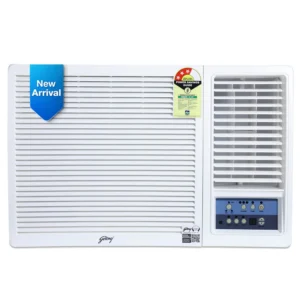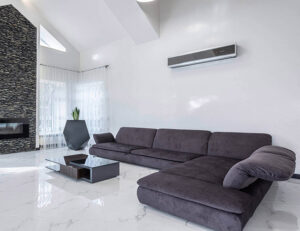Second hand ac in good
price Choosing the Right Air Conditioner: A Guide to 1-Ton, 1.5-Ton, and 2-Ton AC Units
As temperatures rise, having an efficient air conditioner becomes essential for a comfortable living space. Selecting the right size for your AC unit is crucial to ensuring optimal performance, energy efficiency, and cost savings. This blog will explore the differences between 1-ton, 1.5-ton, and 2-ton air conditioners, helping you make an informed decision for your cooling needs.

Understanding AC Tonnage
The term “tonnage” in air conditioning refers to the unit’s cooling capacity. One ton of cooling capacity equals 12,000 BTUs (British Thermal Units) per hour. Therefore, a 1-ton AC can remove 12,000 BTUs of heat per hour, a 1.5-ton unit can remove 18,000 BTUs, and a 2-ton unit can remove 24,000 BTUs.
Selecting the right tonnage depends on several factors, including the size of the room, insulation, number of occupants, and local climate. An incorrectly sized AC can lead to inefficient cooling, higher energy bills, and increased wear and tear on the unit.
Factors to Consider When Choosing AC Tonnage
1. Room Size
The size of the room is the primary factor in determining the appropriate AC tonnage. Here are some general guidelines:
- 1-Ton AC: Suitable for rooms up to 120 square feet (e.g., small bedrooms or study rooms).
- 1.5-Ton AC: Ideal for rooms between 120 to 180 square feet (e.g., medium-sized bedrooms or small living rooms).
- 2-Ton AC: Best for rooms between 180 to 240 square feet (e.g., large bedrooms or medium-sized living rooms).

2. Insulation
Good insulation helps maintain indoor temperatures and reduces the workload on your AC. Poorly insulated rooms require a higher tonnage unit to achieve the same cooling effect.
3. Number of Occupants
More occupants generate more body heat, necessitating a higher capacity AC unit. If a room frequently hosts multiple people, consider opting for a larger tonnage unit.
4. Local Climate
In hotter climates, a higher tonnage AC is often necessary to effectively cool a room. Conversely, in milder climates, you might get away with a smaller unit.
5. Sun Exposure
Rooms with significant sun exposure, such as those with large windows or south-facing orientations, will need a more powerful AC unit to counteract the extra heat.
Comparing 1-Ton, 1.5-Ton, and 2-Ton AC Units
1-Ton AC Units
Pros:
- Energy Efficiency: Smaller units consume less power, leading to lower energy bills.
- Cost-Effective: Typically cheaper to purchase and install.
- Ideal for Small Spaces: Perfect for compact rooms or areas with minimal heat gain.
Cons:
- Limited Cooling Capacity: Not suitable for larger rooms or areas with high heat load.
- Longer Cooling Time: May take longer to cool a room compared to larger units.
1.5-Ton AC Units
Pros:
- Versatility: Suitable for medium-sized rooms, offering a balance between cooling capacity and energy consumption.
- Efficient Cooling: Capable of cooling a room faster than a 1-ton unit.
Cons:
- Higher Initial Cost: More expensive than 1-ton units.
- Increased Power Consumption: Uses more energy, leading to higher operating costs.
2-Ton AC Units
Pros:
- High Cooling Capacity: Ideal for larger rooms or spaces with high heat gain.
- Faster Cooling: Quickly cools down a room, enhancing comfort.
Cons:
- High Energy Consumption: Consumes more power, resulting in higher energy bills.
- Higher Purchase and Installation Costs: More expensive upfront compared to smaller units.
Choosing the Right AC for Your Needs
When
selecting an AC unit, it’s essential to balance your cooling needs with energy efficiency and cost considerations. Here are some tips to help you decide:
1. Calculate the Room Size
Measure the length and width of the room to determine its square footage. Use this information to select an appropriately sized AC unit based on the guidelines provided earlier.
2. Consider Energy Efficiency
Look for units with a high Energy Efficiency Ratio (EER) or Seasonal Energy Efficiency Ratio (SEER). Higher ratings indicate better energy efficiency, which can lead to long-term savings on your energy bills.
3. Evaluate Your Budget
While larger units offer more cooling power, they also come with higher purchase and operating costs. Choose a unit that fits within your budget while still meeting your cooling requirements.
4. Assess Additional Features
Modern AC units come with various features such as programmable thermostats, remote controls, sleep modes, and air purifiers. Consider which features are important to you and factor them into your decision.
5. Consult with a Professional
If you’re unsure about the right AC size for your needs, consult with a professional HVAC technician. They can assess your space, consider all relevant factors, and recommend the best unit for your situation.
Conclusion
Selecting the right air conditioner tonnage is crucial for maintaining a comfortable living
environment while optimizing energy efficiency and cost. A 1-ton unit is perfect for small rooms, a 1.5-ton unit suits medium-sized spaces, and a 2-ton unit is ideal for larger areas. By considering factors such as room size, insulation, number of occupants, local climate, and sun exposure, you can make an informed decision that ensures efficient and effective cooling.
Investing time in choosing the right AC unit will pay off in the long run, providing you with a cool, comfortable home and savings on your energy bills. Whether you opt for a 1-ton, 1.5-ton, or 2-ton unit, proper maintenance is key to maximizing its lifespan and performance. Regularly clean or replace filters, inspect coils and ductwork, and schedule professional inspections to keep your AC running smoothly for years to come.


